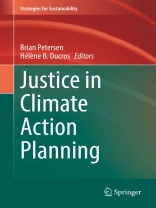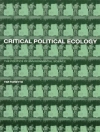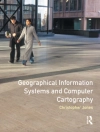This edited volume examines how climate action plans engage justice at the scale of the city. Recent events in the United States make the context particularly ripe for a discussion of justice in urban climate politics. On the one hand, the emergence of the Black Lives Matter movement, George Floyd’s death, and the prominence of racial discrimination in the public realm have mainstreamed the notion of justice. On the other hand, the dire consequences of increased frequency and severity of climate events on vulnerable segments of urban populations are undeniable. While some cities have been proactive about integrating justice in their climate action planning, in most places an explicit and systematic link between both spheres has been lacking. This book explores this interface as it seeks to understand how cities can respond to climate change in a just way and for just outcomes. While resilience strategies based on “development” may engage historic inequities, they may at the same time result in marginalizing certain populations through various processes, from mismatched solutions to outright exclusion and climate gentrification. By identifying how certain populations are included in or excluded from climate action planning practices, the chapters in this volume draw on case studies to outline the differential outcomes of climate action in American cities, also proposing a template for comparative work beyond the US.
The authors tackle the debate about how justice is or is not integrated in climate action plans and assess practical implications, while also making theoretical and methodological contributions. As it fills a gap in the literature at the intersection of justice and climate action, the book produces new insights for a wide-ranging audience: students, practitioners, policy-makers, planners, the non-profit sector, and scholars in geography, urban planning, urban studies, environmental studies, ecology, political science, or anthropology. Along five axes of investigation―theory, resilience, equity, community, and comparison as method―the contributors offer various pathways into the intersection between urban climate action and different understandings of justice. Collectively, they invite a reflection that can lead to practical initiatives in climate mitigation, while also advancing the theorization of social justice to account for the urban as a node where (in)justice plays out and can be addressed with significant results.
Tabla de materias
Chapter 1.- Integrating inclusivity & justice into climate action planning: Beyond mere symbolism. Chapter 2.- We can’t address what we don’t acknowledge: How urban climate adaptation plans confront racial injustices. Chapter 3.- Sustainable city? The search for social justice in Flagstaff, Arizona’s climate action plan. Chapter 4.- Missing the Housing for the Trees: The Challenge of Equity in Urban Climate Planning. Chapter 5.- Climate Discourses in France: Fuel Taxes, Yellow Vests, and the Grand Débat. Chapter 6.- Incorporating an Equity Lens into Local Climate Action Planning: Portland, Oregon’s Experience. Chapter 7.- Community engagement and equity in climate adaptation planning: experience of small and mid- size cities in the United States and in France. Chapter 8.- Mobilities In Climate Action Planning: The Challenges of Integrating (In)Justices in Current Policies. Chapter 9.- Resilience and climate risk in extreme and extreme – ing urban environments: planning and climate justice. Chapter 10.- Addressing Individualized Risk Response to Climate Resilience Assessment by Fostering Adaptive Capacity. Chapter 11.- Downscaling Resilience: Appropriating and Contesting Resilience from City to Neighborhood. Chapter 12.- Cultural Heritage Preservation, Climate Action Planning, and Social Justice. Chapter 13.- Community agency for climate justice through and beyond the state: The Little Village Environmental Justice Organization. Chapter 14.- Creating Tools for Community Based Climate Planning. Chapter 15.- Interagency Collaborations in Place- Based Environmental Sustainability Work: Social Network Insights at the Community Level. Chapter 16.- Afloat and Adrift: What’s the Plan as South Florida Slowly Sinks? Chapter 17.- Vulnerable Locations and the Need for Climate Action Planning: The Case of Cape Coral, Florida.
Sobre el autor
Dr. Brian Petersen is assistant professor in Geography, Planning & Recreation at Northern Arizona University.
Dr. Hélène B. Ducros holds a JD and Ph D in geography from the University of North Carolina at Chapel Hill. She is Chair of Research and Pedagogy at the Council for European Studies at Columbia University.












